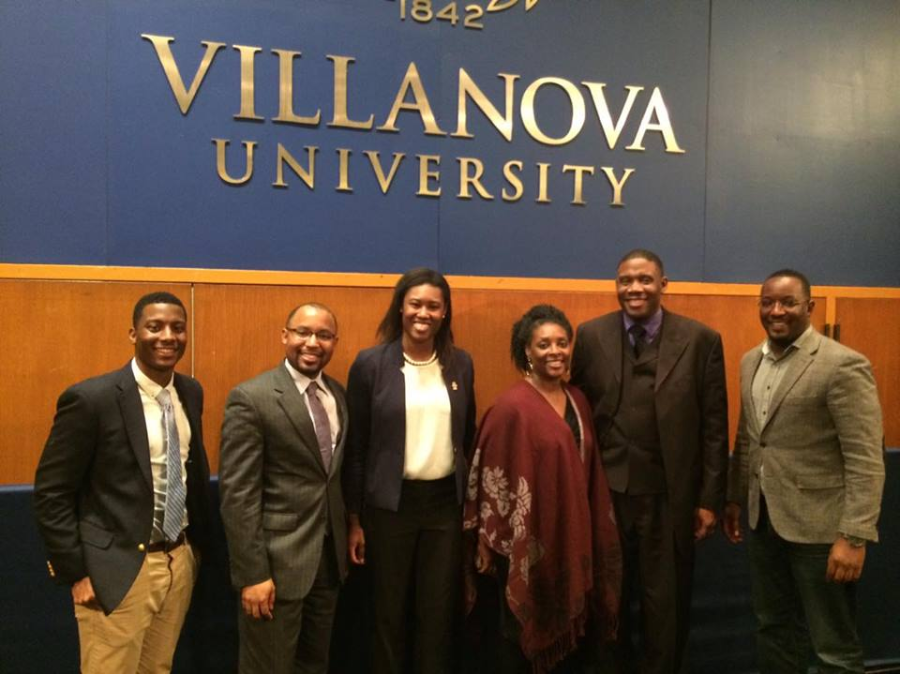Black History Panel Engages Student Audience
March 8, 2016
Educators, activists and black leaders gathered for a discussion about race in the Villanova Room on Wednesday, Feb. 24.
The official event, titled, ‘The Black History Panel: From Past to Present,’ was hosted by the W.I.S.E. (Working to be Informed, Studious, and Engaged) Male Mentoring Program. The program is coordinated by Marquis Coates, a member of the class of 2011. The panel was advertised as the sequel to a conversation that took place in late October, titled ‘Black Men: Race, Education, Mentorship and Careers.’
W.I.S.E is a branch of the Center for Multicultural Affairs (CMA), which works to make Villanova a more diverse community in race, gender, ethnicity and culture.
Charisma Presley, Assistant Director of Retention and Outreach for CMA, spoke on the panel about building reciprocal relationships within black communities. Presley also added that even those who do not experience issues of discrimination directly experience their effects indirectly, and this knowledge should make communities more active for social justice.
“There’s beauty when we talk to each other,” Gregory Scott said, a speaker at the event and Pennsylvania’s youngest sitting judge. Scott, 28, is also Montgomery County’s first African-American district judge. “We have this nostalgic view of the past, but only 14 percent of the black community actively participated in the civil rights movement,” Scott said. “If we all vote and join organizations, we’re beating that 14 percent.”
Scott explained that his campaign for judgeship was inspired by the injustices he saw in Norristown, the city where he grew up and still resides. Scott emphasized that African-Americans can create positive black history by making informed decisions and passionately acting on their divine assignments.
“I want to be a part of the generation that realigns who we are with the vision of our ancestors,” DaVion Louis said, a senior panel member from the school of Business, and president of the Multicultural Business Association. Louis also stated that University students who truly want to ignite change should attend events like this to learn about diverse groups of people.
Marsha Richard, another senior on the panel and president of Villanova’s Alpha Kappa Alpha sorority chapter, spoke about how black women can make history by being voices for others, mentoring the youth, and being an advocate for other young women who may experience similar struggles. Richard’s positive message resonated well with the unified audience.
“The president is not the only important political position,” Sulaihman Rahman said, a panelist and CEO of Urban Philly Professional Network. “Who we elect as a judge matters, and who we elect at the local level matters. We should vote every year, twice a year.”
Dr. Wesley T. Proctor, a youth pastor in Philadelphia, said that racism will never die – it is too broad of a concept and affects too many individual lives. “It will take too much reconciliation,” Proctor said. “But if we work to understand each other’s cultures, progress can certainly be made.”
“I just wish more people would have come out to hear the panel,” sophomore Morgan Reid said. “Really intellectual, eye-opening things were said. The CMA shouldn’t be the only department promoting events like this.”
Despite the small attendance, the lack of a huge crowd gave the discussion an intimate feel of mentorship, and each person in attendance gained something new.
“I was honored and shocked,” said Louis. “I was purposefully listening for most of the panel because I haven’t heard these points my entire life.”


